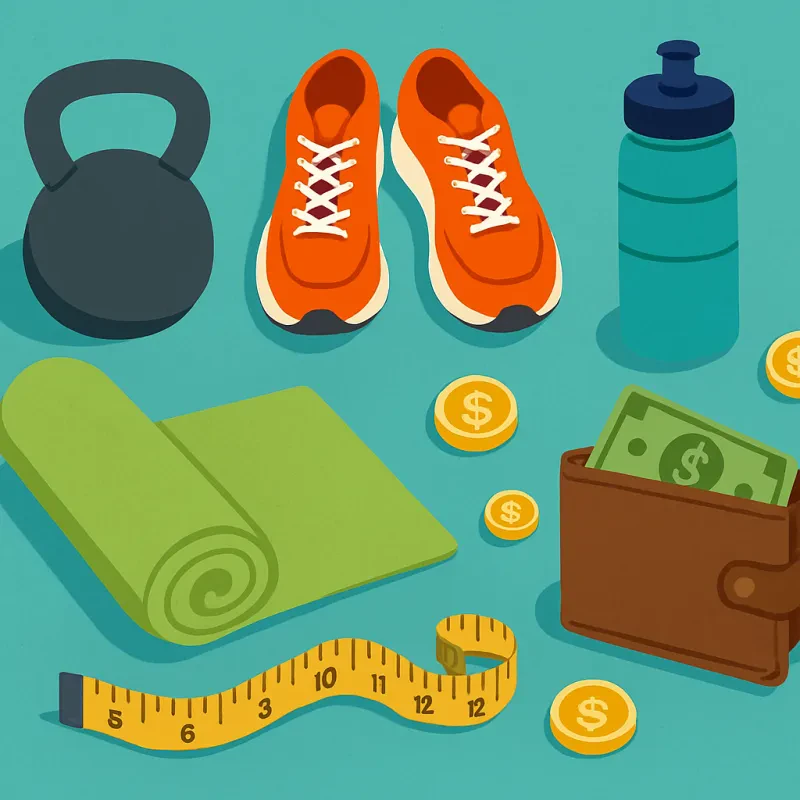Understanding the Role of Hydration in Achieving Optimal Health
Understanding the Role of Hydration in Achieving Optimal Health
Hydration is a fundamental aspect of maintaining optimal health, yet it is often overlooked in our daily lives. Water plays a vital role in nearly all bodily functions, making it essential for overall well-being.
Many people underestimate the importance of staying properly hydrated. Dehydration can lead to a wide range of health issues, including fatigue, headaches, dizziness, and even decreased cognitive function. By understanding the impact that hydration has on our bodies, we can take steps to prioritize it in our daily routines.
The Benefits of Hydration
Proper hydration provides numerous benefits for our bodies. It helps maintain a healthy body temperature, lubricates joints, aids in digestion, and supports the efficient transportation of nutrients throughout the body. Additionally, staying hydrated can improve skin health, boost cognitive function, enhance physical performance, and aid in weight management.
Adequate hydration is especially crucial during physical activity. When we exercise, our bodies lose water through sweat, which can lead to dehydration if not replenished. This can negatively affect performance and increase the risk of heat-related illnesses. By drinking enough water before, during, and after exercise, we can optimize our physical performance and ensure our bodies are properly fueled.
Signs of Dehydration
Recognizing the signs of dehydration is essential in maintaining optimal health. Common symptoms include feeling thirsty, having a dry mouth, infrequent urination, dark yellow urine, fatigue, and dizziness. Dehydration can occur not only during physical exertion but also through daily activities, exposure to heat, and certain medications.
It is important to note that the sensation of thirst is often a late indicator of dehydration. By the time you feel thirsty, you may already be mildly dehydrated. That is why it is crucial to prioritize regular hydration throughout the day, even if you do not feel thirsty.
Optimizing Hydration
To achieve optimal health through proper hydration, it is recommended to drink enough water throughout the day. The exact amount varies depending on factors such as age, activity level, and climate. However, a general guideline is to aim for at least eight 8-ounce glasses of water per day (also known as the 8x8 rule).
Other sources of hydration can include herbal teas, fruits, vegetables, and even some soups. Additionally, it is important to limit the intake of caffeine and alcohol, as they can have a diuretic effect, leading to increased water loss and potential dehydration.
Integrating regular hydration into your daily routine can be made easier by carrying a reusable water bottle, setting reminders to drink water, or opting for hydrating snacks throughout the day.
In conclusion, understanding the role of hydration in achieving optimal health is crucial for overall well-being. By prioritizing proper hydration, you can support your body's vital functions, enhance performance, and promote a healthy lifestyle. Remember, every sip counts towards your journey to optimal health.
For more information on maintaining good health, you may refer to our comprehensive guide on "The Importance of Nutrition and Exercise in a Healthy Lifestyle".
Common Signs and Consequences of Dehydration: Why Hydration Matters
Hydration: The Often Overlooked Key to Optimal Health
Water is essential for our bodies to function properly. It plays a crucial role in maintaining various bodily functions, including temperature regulation, digestion, and nutrient transportation. However, many people underestimate the importance of staying hydrated and fail to adequately nourish their bodies with the necessary amount of water. This article aims to shed light on the common signs and consequences of dehydration, emphasizing why hydration matters for optimal health.
Signs of Dehydration
Dehydration occurs when your body loses more fluids than it takes in. It can happen due to various reasons, such as excessive sweating, inadequate fluid intake, or certain medical conditions. Recognizing the signs of dehydration is crucial to prevent its adverse effects. Here are some common symptoms to look out for:
- Thirst: Feeling unusually thirsty is one of the first indications that your body needs more water.
- Dry Mouth and Lips: When you're dehydrated, your saliva production decreases, resulting in a dry mouth and cracked lips.
- Dark-Colored Urine: Urine color serves as a good indicator of hydration levels. If your urine is dark yellow or amber, it's a sign that you need to drink more fluids.
- Headaches and Dizziness: Inadequate hydration can lead to headaches, light-headedness, and dizziness. These symptoms often occur when the brain doesn't receive enough water to function optimally.
- Fatigue and Weakness: Dehydration can cause you to feel tired, sluggish, and lacking energy. It can have a significant impact on your overall productivity and well-being.
- Muscle Cramps: Insufficient fluid intake can result in muscle cramps and spasms. These painful sensations can be a result of an electrolyte imbalance caused by dehydration.
- Dry Skin: When your body lacks water, your skin loses its natural moisture, leading to dryness, itching, and an overall dull appearance.
Consequences of Dehydration
Failing to maintain proper hydration levels can have severe consequences on your health and well-being. Some of the potential negative effects of dehydration include:
- Impaired Cognitive Function: Dehydration can affect your cognitive abilities, including memory, focus, and concentration.
- Reduced Physical Performance: Inadequate hydration can hinder athletic performance, endurance, and coordination.
- Increased Risk of Kidney Stones: Insufficient water intake can contribute to the formation of kidney stones, a painful condition that requires medical intervention.
- Digestive Issues: Dehydration can lead to constipation and other digestive problems, as water is crucial for smooth digestion.
- Heat-related Illnesses: When the body lacks water, it struggles to regulate its temperature, making it more susceptible to heat exhaustion and heatstroke.
- Impaired Organ Function: Without enough water, vital organs like the heart, liver, and kidneys may not function optimally, potentially leading to more serious health issues.
When it comes to hydration, prevention is key. To maintain optimal health, it's important to drink enough water throughout the day and listen to your body's signals. Strive to make hydration a habit, and you'll enjoy the countless benefits it brings to your overall well-being.
Practical Strategies for Ensuring Proper Hydration and Improving Overall Health
Now that we understand the importance of hydration for optimal health, let's explore some practical strategies to ensure we stay properly hydrated throughout the day:
1. Carry a Water Bottle
Invest in a reusable water bottle that you can carry with you wherever you go. This will serve as a constant reminder to drink water regularly. Keep it with you at your desk, in your car, or in your bag.
2. Set Hydration Goals
Create daily hydration goals based on your individual needs. For example, aim to drink at least eight glasses of water or consume a certain amount of fluids per day. Keep track of your progress to ensure you're meeting those goals.
3. Drink Water First Thing in the Morning
Make it a habit to drink a glass of water as soon as you wake up. This helps kickstart your hydration for the day and rehydrates your body after the hours of sleep.
4. Infuse Water with Fruits and Herbs
If you find plain water unappealing, try infusing it with fresh fruits like lemon, cucumber, or berries, along with herbs like mint or basil. This adds a refreshing flavor to your drink, making it more enjoyable.
5. Set Reminders
In our busy lives, it's easy to forget to drink enough water. Set reminders on your phone or use hydration apps to remind you to drink water throughout the day. Consistency is key!
6. Monitor Urine Color
Your urine color is a good indicator of your hydration status. Aim for a pale, straw-like color. If your urine is dark yellow, it's a sign that you need to drink more water.
7. Eat Hydrating Foods
Include fruits and vegetables with high water content in your diet, such as watermelon, cucumbers, oranges, and strawberries. These foods not only provide hydration but also essential nutrients.
8. Limit Dehydrating Beverages
Avoid or reduce the consumption of dehydrating beverages like alcohol, coffee, and sugary drinks. These can actually deplete your body's water levels and hinder your hydration efforts.
9. Make Water Easily Accessible
Place water pitchers or dispensers in areas where you spend the most time, such as your workspace or kitchen. Having water readily available will encourage you to drink more throughout the day.
10. Listen to Your Body
Pay attention to your body's signals and thirst cues. When you feel thirsty, it's a sign that your body is already slightly dehydrated. Drink water even before you feel thirsty to stay properly hydrated.
By implementing these practical strategies into your daily routine, you can ensure proper hydration and improve your overall health. Remember, small changes in your hydration habits can have a big impact on your well-being!


